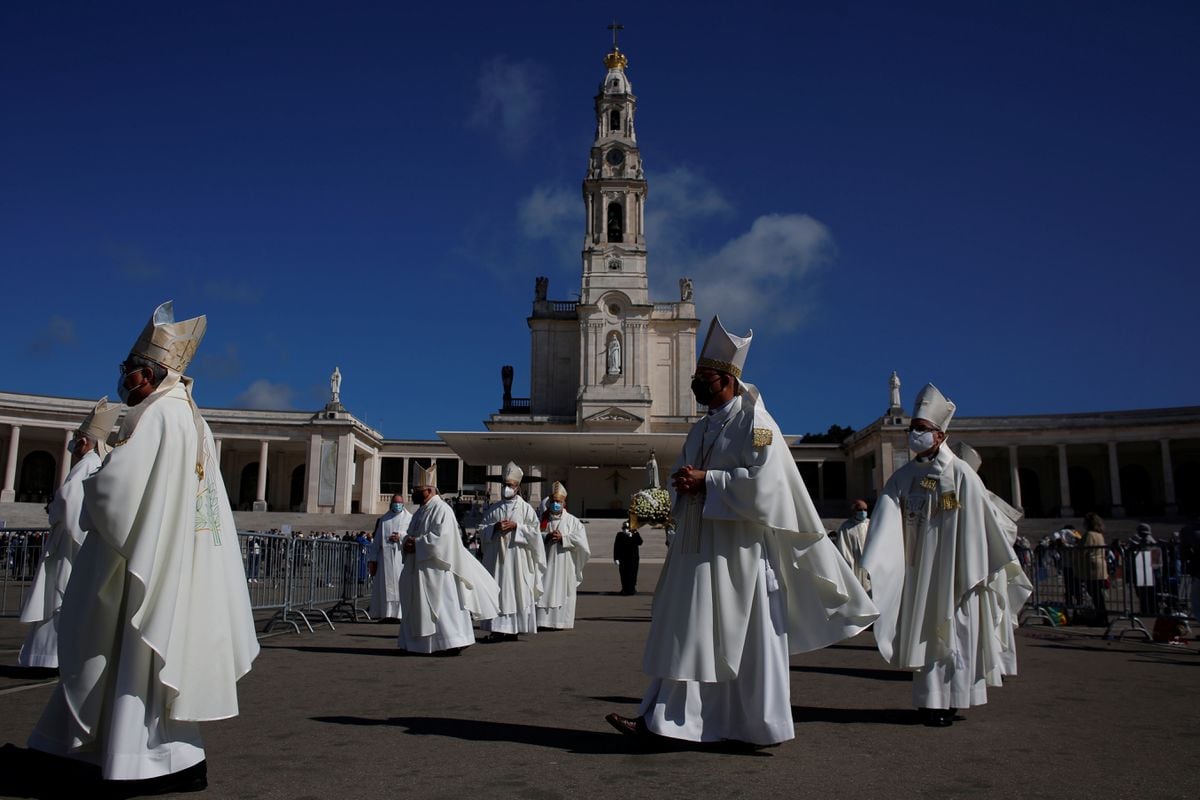The Portuguese bishops will allow the commission that studies sexual abuse in the Church access to the diocesan archives to know those cases that have been denounced in the past within each diocese.
The decision was made this Wednesday by the permanent council of the Portuguese Episcopal Conference, to which 21 bishops belong.
It is a step that strengthens the transparency strategy initiated in November, with the creation of an independent commission that studies pederasty in the Portuguese religious sphere between 1950 and 2022 and which is chaired by the psychiatrist specializing in childhood and adolescence Pedro Strecht.
Access to diocesan archives depends on the will of each bishop, who is only answerable to the Vatican.
According to the Ecclesia Agency, quoted by the newspaper
Público
, the mission of these archives is included in the Code of Canon Law, which establishes that each diocese has an archive to house "the documents that must be kept secret."
At the next plenary meeting of the Episcopal Conference, to be held in April, a common procedure will be established to transfer all information on sexual abuse found in the files to the commission.
In its first month of activity, the Portuguese commission has received 214 testimonies from victims of sexual abuse, although many of the stories identify aggressors who abused several minors.
"In many testimonies, the victims not only describe what happened to them, they also point to the knowledge or a strong probability that, in those circumstances of time and space, other children have been victims of the same abuser," they point out in a note of press.
The cases reported so far come from people who were born between 1933 and 2006, which indicates some recent sexual assaults, committed when investigations into ecclesiastical pedophilia had already come to light in other countries, such as the one revealed in 2002 by
The Boston Globe
on the priests who had committed abuse in Boston and who had been protected by the Catholic hierarchy.
Also in 2002 they were unveiled in Portugal, thanks to an investigation by the weekly
Expresso
, the sexual abuse that had been committed for three decades at the Casa Pía, a state institution (not religious) that managed a network of schools.
Well-known figures from politics, television and diplomacy were involved in this network of pederasty, apart from employees of the Casa Pía.
The victims who have transferred their testimony to the Portuguese commission report abuses committed both in mainland Portugal and in the archipelagos of Madeira and Azores.
Their social profile is heterogeneous.
"The stories described reveal individual, family and social psychological suffering, sometimes hidden for decades and, in many circumstances, kept secret until the time of making this statement," the commission said in its statement.
"This suffering is associated with feelings of shame, fear, guilt and self-exclusion, reinforcing the notion of facing lives with the feeling of being on the sidelines," they add.
The Portuguese commission is joint and is made up of six people.
Its president, Pedro Strecht, is a psychiatrist specialized in childhood and adolescence who also participated in the care of minors abused in the Casa Pía scandal, which gave rise to a long legal process (six years).
Strecht was commissioned by the Episcopal Conference to study the sexual abuse of minors last November and accepted because they gave him a free hand to choose the rest of the team, made up of professionals from different fields such as the sociologist Ana Nunes de Almeida, the former Minister of Justice Álvaro Laborinho Lúcio, the psychiatrist Daniel Sampaio, the therapist Filipa Tavares and the filmmaker Catarina Vasconcelos.
The abuses transferred to the commission that have not prescribed will be denounced before the courts.
Last October, the Portuguese Parliament approved a bill to increase the statute of limitations for sexual crimes against minors to 15 years, which will only start to count when the victim reaches 35 and not when they reach the age of majority.
In practice, it allows the time in which the victim can take the step of going to court to report her case to be extended to 50 years.
In addition, if the minor was under 14 years old when the abuse occurred, the statute of limitations will be even later, since it will start counting when the affected person turns 40 (in practice, he or she could report up to 55 years of age).

